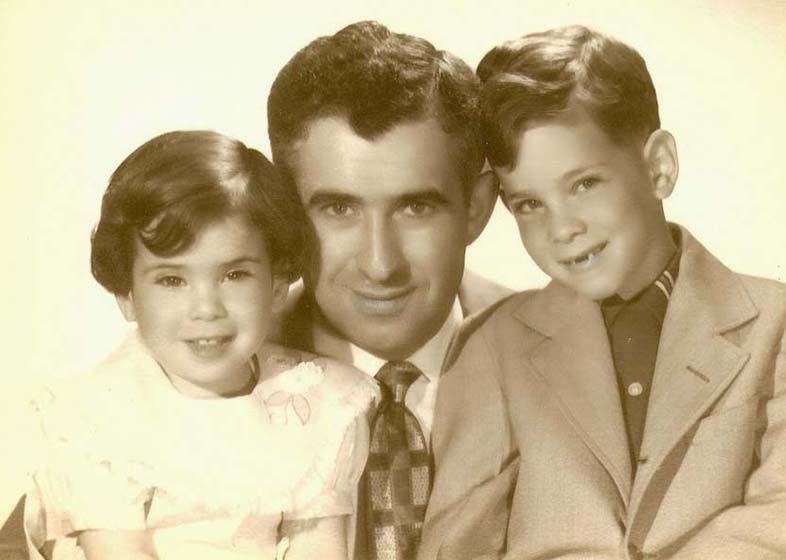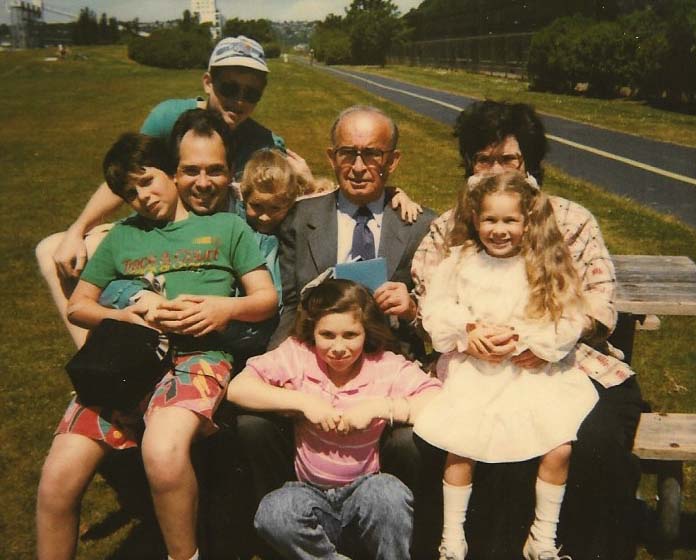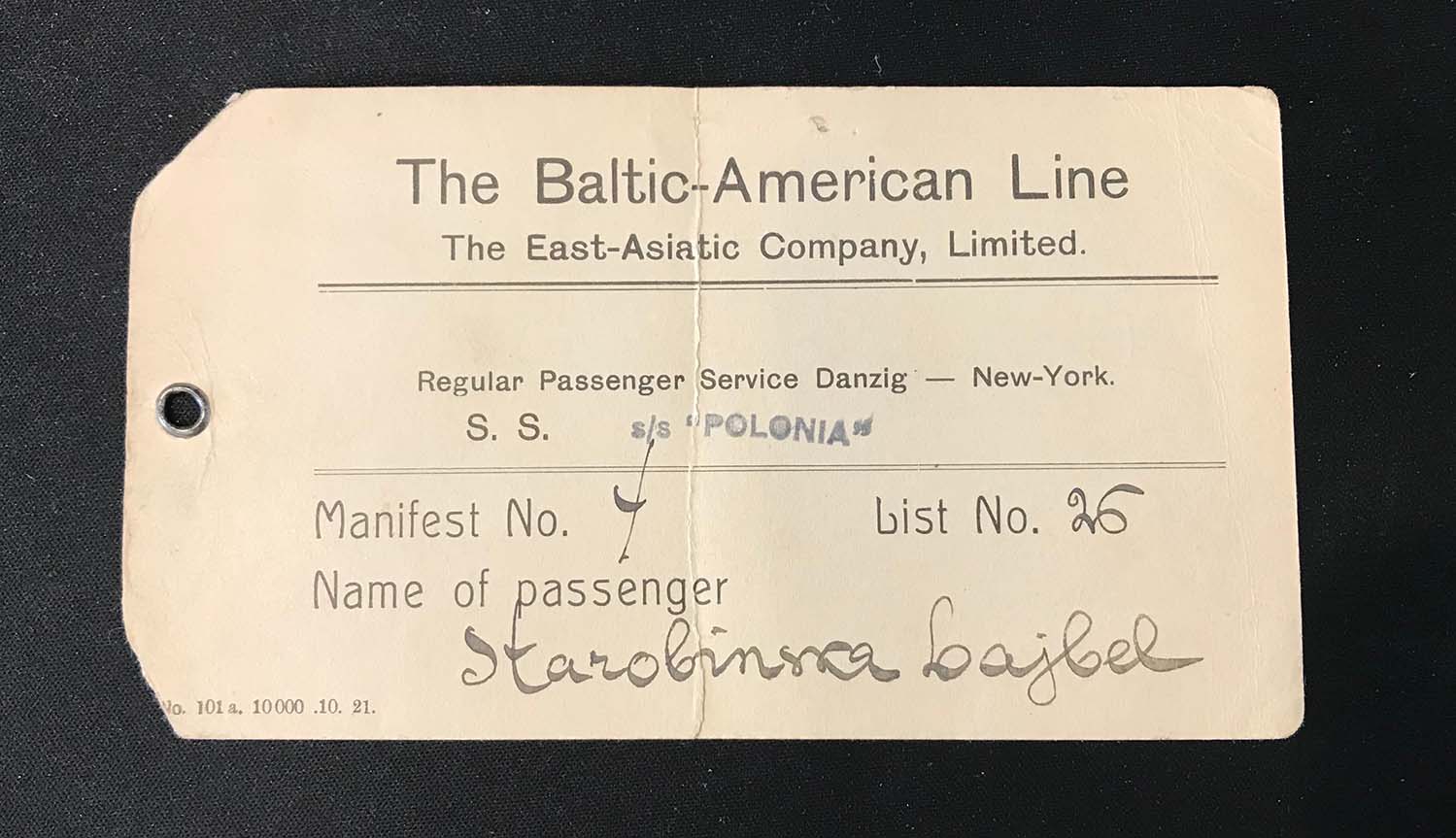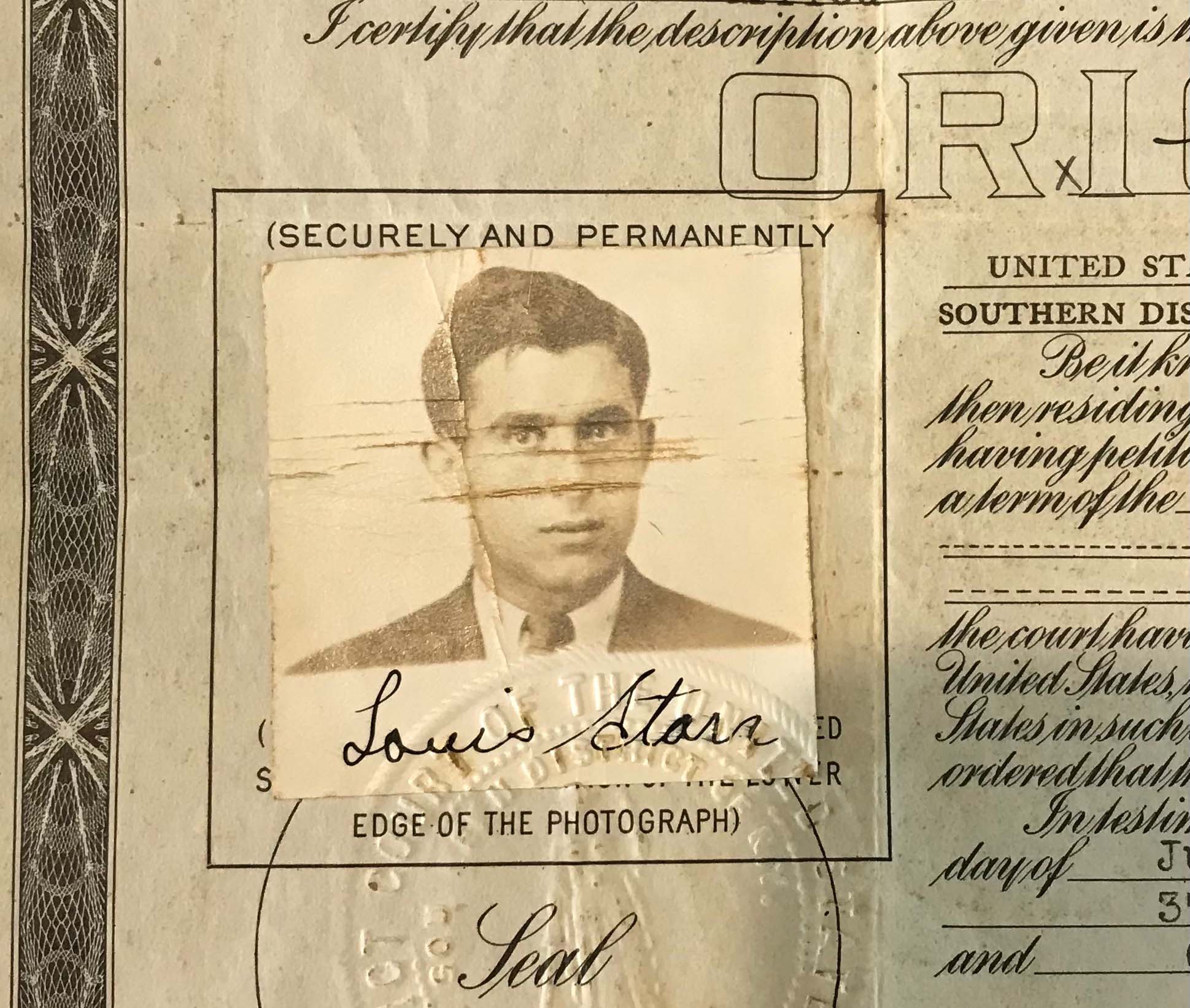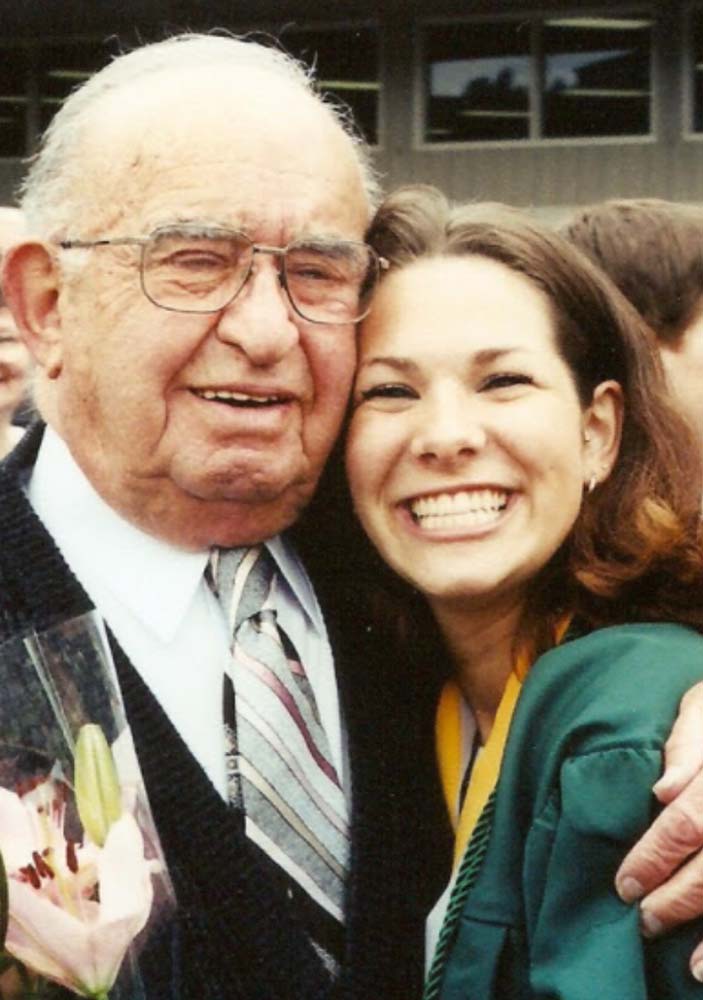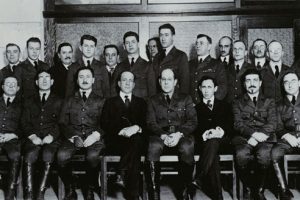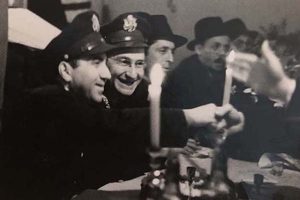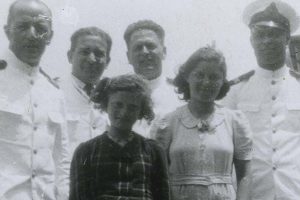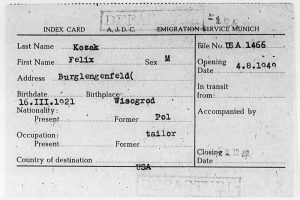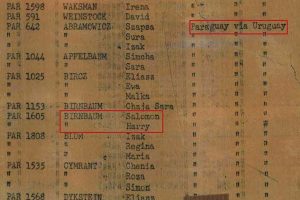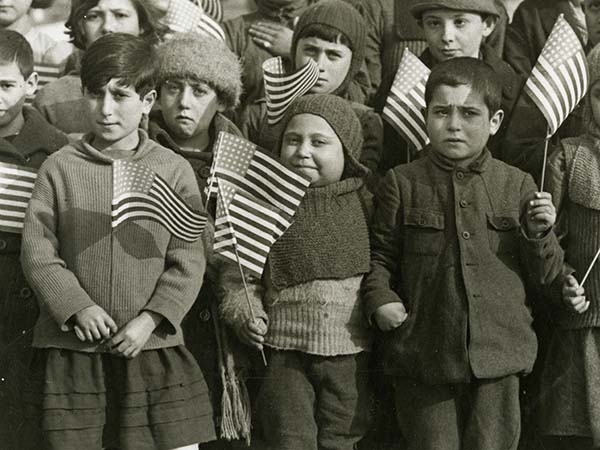
A Snapshot of Coming to America
Audrey Starr Janssen shares her grandfather and great-aunt’s story through a JDC Archives photo.
My grandfather was a family man. He loved his family dearly and showed it through all he did. There was always an air of mystery to him, though. There were things about his past that I knew nothing about. When I got the school assignment of interviewing a person on their life, he was beyond a doubt the man to interview. I sat on his old lumpy couch with only the sunrays from the big sliding back door to light up his tiny townhouse in east Seattle. His little dog Smokey at my feet eagerly awaited my attention as I laid out my paper to take down my notes. I remember the way my grandfather sat quietly on the couch beside me sipping his tea after I explained my assignment to him. He seemed uncomfortable which was odd to me. My Grandpa was an outgoing people person. Why this sudden sadness on his face? I didn’t understand, but I was soon to come to know why.
“I was born in Minsk, Russia (modern-day capital of Belarus) in 1913,” my grandpa began. I had believed that my grandfather was born in New York City where he met and married my grandmother Edith. I only learned earlier that year that I was wrong. It was still odd to hear him say it. Over my visit that one misty Seattle day I learned that my grandfather lived a life I knew nothing of. A life that was hard and often unkind. I had never seen my grandfather cry until that day.
Louis Starr was the name he picked for himself. When he came to America just a few weeks shy of his ninth birthday, my grandpa wished for a new life. A life that would hopefully be far from the life he had once lived.
Louis’s mother, Fannie, was pregnant with him when she traveled from New York to Minsk with his two older sisters to care for her ill mother. Little did they know that in just a year, World War I would trap them in Belarus. The hunger and fear caused by the war and Russian Revolutions were not the only obstacle they faced. Not long after Louis’s third birthday, he had not only lost his grandmother, but his mother as well, leaving him and his two sisters orphans. They had been living with family in Turów (now Turov, Belarus) when he and his oldest sister Celia were sent to live in an orphanage. His second oldest sister Ida was separated from them and not to be seen again until he was an adult. He learned that she had come to America when she was seventeen years old.
It took my grandfather a long time to get out that short amount of information. He was forced by tears to take long pauses between his memories of a past he did not wish to bring up.
After my grandfather’s passing in 2007 at the age of 94, my father asked me to hang onto my grandfather’s beautiful leather-bound filing case with his name in gold lettering. During the Covid shutdowns I sat down, thumbing through his belongings he kept in beautiful condition. I longed to keep his memory alive by sitting down and showing my children his childhood passport and luggage tag from his journey so long ago to America. I told them the stories he had shared with me on different visits following that one school assignment.
I had to know more, I thought in that moment sitting with my children leaning over his passport. How did he and his sister, two orphans, come to be in America? I knew their father had tried to rescue them but was turned back due to the conflicts in Russia at the time. So, if he didn’t bring them home, then who had? I longed to put more of the pieces together.
Through countless emails with nonprofit organizations and archive researchers, I came to discover a few more documents and a photo which I had never seen. The photo I had never seen was in the American Jewish Joint Distribution Committee’s archives. In this one photo, staring me in the eye was my great aunt Celia. It was her beyond a doubt. She wore a loose neck turtleneck sweater with sweeping bangs and short hair. I had seen her like this so many times before, but not in this picture. This picture was new to me and our family. The picture I had seen of her in this same outfit was taken on the same day but by the New York Daily News. The New York Daily News took her picture and my great grandfathers’ picture for an article about them being reunited. It was framed at Celia’s daughter’s house. The headline reading, “DEATH CHEATS HIS WORLDWIDE SEARCH FOR WIFE.” I quickly searched the photo for my grandfather. I remember letting my breath out in astonishment as my eyes fell upon him. Smack in the middle of the front row he stood. His cute round face with his very defined widows peak and curved cowlick. He stood there squinting in the sunlight looking off, waving an American flag on the S.S. Polonia ported in New York City on what appeared to be a very cold December day in 1921. I pulled out his passport picture taken a few months before this photo. He wore the same peacoat in both photos.
Some of the pieces were beginning to fall into place. The ship manifest stated, “By whom was passage paid?” There, next to their names and several other children, was J.D.C. The Joint Distribution Committee paid for the safe passage of my grandfather, great aunt, and other children orphaned as a result of World War I. In 1920, JDC created the War Orphans Bureau, which facilitated the emigration of needy Jewish children from Eastern Europe to the United States and elsewhere. Without their help, one can only imagine what would have become of them.
Family meant everything to my grandfather. Because of the Joint’s help so long ago in bringing those two small children back to their father in New York, they gave my grandfather and his sister the gift of life. It may not have always been easy. But it was a life well lived and a life that will continue to live on through his two children, five grandchildren and nine great grandchildren.
Explore your own family history in the JDC Archives Names Index.
About the Author
Audrey Starr Janssen lives in Los Angeles, CA. She is an actor, history lover, and storyteller who is working on publishing her first book for children based on her grandfather’s life in Belarus. This story was shared with her permission.
